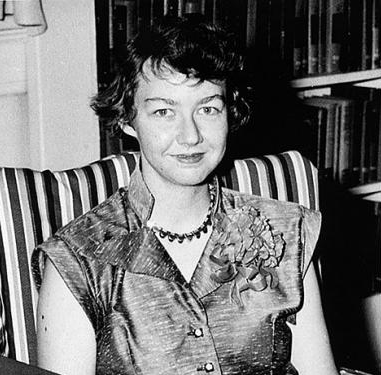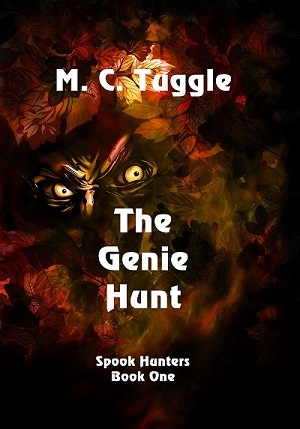“Since the eighteenth century, the popular spirit of each succeeding age has tended more and more to the view that the ills and mysteries of life will eventually fall before the scientific advances of man, a belief that is still going strong even though this is the first generation to face total extinction because of these advances.” – Flannery O’Connor
Monthly Archives: July 2017
Monster Hunter Nation meets Mayberry in MC Tuggle’s newest fantasy ebook
From WAND-TV of Danville, Virginia:
Buddy Vuncannon returns in MC Tuggle’s newest ebook, The Genie Hunt. He must defend his old friend Coot Pickard when Coot is identified by close acquaintances as the gunman in a series of robberies. Plot twists and plenty of action abound.
Thanks for the kind words!
The Final Word
My wife and I caught a pre-screening of the documentary “Obit” last night. It introduces the general public to the people and the process of crafting the obituaries of both famous and significant people who have died.
Now from that lede, you’re probably thinking this must be a yawner of a movie. In fact, it’s not only one of the most entertaining movies I’ve seen in years, it’s also an illuminating commentary on writing. In the picture above, New York Times reporter Margalit Fox fields questions from the audience. She’s the “baby” of the obituary staff, and gets much face time in the documentary.
She shared a few insider jokes that reveal much about writing. One involved a talented newcomer to the news business. He was not only a gifted writer, but took pride in thorough research. Despite his heroic efforts, he kept getting angry calls from readers about inaccurate statements in his stories. When he sought the advice of an old-timer, the pro sat back in his chair, put his hands behind his head, and said, “Kid, it’s real simple. Quit putting in too many facts.”
Margalit offered a useful example of what the old pro meant. In one of her first obits, she identified the deceased’s father as a “Democratic congressman from Illinois.” An irritated relative informed Margalit that her uncle had in fact been a Republican. “I assumed he was a Democrat because he was from Illinois,” confessed Margalit. “But my obit would’ve been just as good if I’d only described the deceased’s father as ‘a congressman from Illinois.'” Lesson learned: Less is better.
Another joke was about an experienced reporter whose editor told him to write a short report on a breaking story. “I can give you a 5,000-word story,” said the reporter. “I don’t have enough time to write a short report.” He had a point — short works are hard to do.
Bottom line, don’t miss this documentary. The characters (starting with the madcap manager of the New York Times’s morgue), the tension created by meeting deadlines while treating the bereaved family with respect and sympathy, and the fundamental difficulty of “getting the words right” make “Obit” a must see. Highly recommended.
Small is beautiful
Anne R. Allen observes that the art of fiction is constantly evolving, and that the alert writer must adapt to the times:
Fiction writing has gone through vast changes since Tolstoy’s day.
In fact, it has changed a good deal in the last decade.
Amy Collins at The Book Designer reports the average NYT Bestseller is now half as long as it was in 2011.
And the brand new Smashwords survey shows bestselling romance novels have decreased by 20,000 words since 2012.
The fastest growing fiction form right now is the novella.
If you want to sell books in the 21st century, you need to write books for the 21st century reader.
Whether we want to write potboilers or a future classic, we all want more people to read our work. So it only makes sense to learn what folks want to read. e.e. cummings once noted that poets not only have to compete with other fine poets for their readers’ attention, but also with “flowers and balloons and mud puddles and train rides.” And in the Internet Age, there are countless other contenders for increasingly brief attention spans, so Anne’s advice is crucial.
And there’s an added benefit to learning to say more with less: It makes you a better writer. Writing short stories, and then flash fiction — a form I once thought I’d never enjoy reading, much less enjoy writing — no doubt taught me to make every word count. And this week, I tried my hand at microfiction, with a story weighing in at less than 500 words. The process of selecting and marshalling your words within strict restraints is a demanding challenge and illuminating joy. Try it!
By the way, you’ll want to read all of Anne’s great article. As usual, she’s peppered it with links to fantastic resources and examples for both the beginning and seasoned writer.



